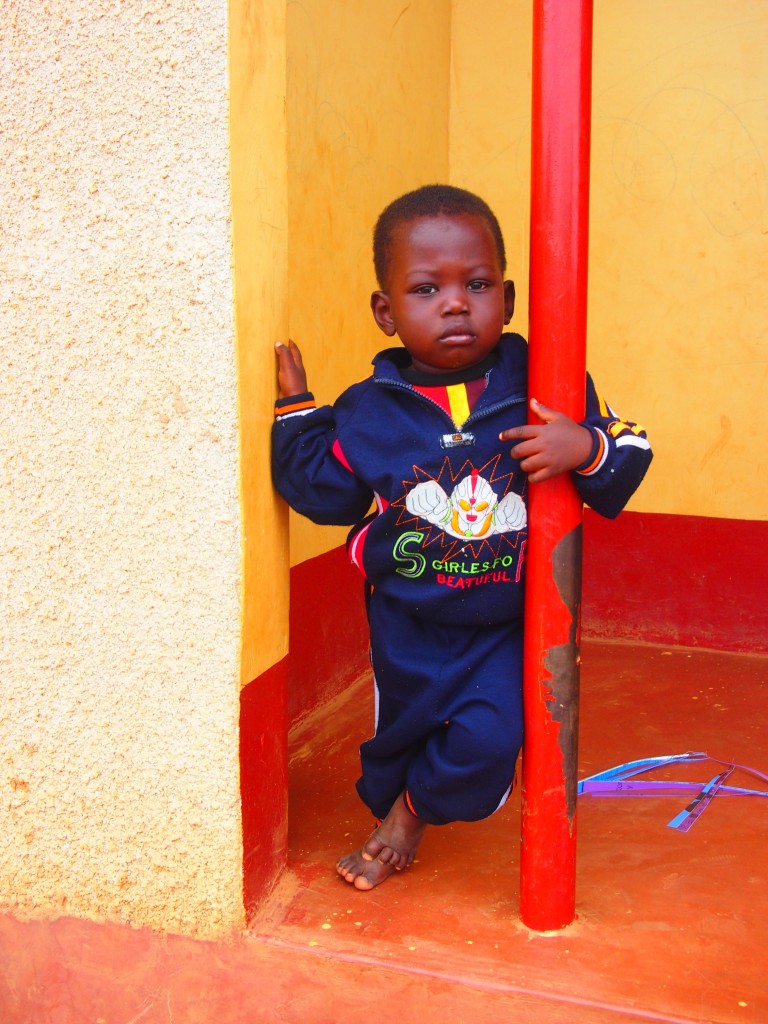This guy. This guy just embodies all that is wonderful and disconcertingly beautiful about the children here, in Kampala. He is all round cheeks and soft skin and tiny chubby hands and a pout – the pout that is, I think, universal to toddlers – but, too, he is solemn, and proud, and his eyes have an age that you can’t measure in months and years.
To look at him is to have one’s breath taken away. It’s also to laugh, awkwardly, in that way that you laugh when you feel a little ridiculous, because seriously: how often do you look into the eyes of a toddler who seems wiser than you?
—–
Writing about the things that you see and the people that meet on a trip like this is difficult, because it’s so hard to do so without coming off as precious, and, of course, privileged. It’s difficult to not adopt that tone, you know the one, the one that says I am touched I am moved I am humbled I am so aware of my privilege I am so fortunate so fortunate. It’s difficult to avoid because you do feel those things, you do, and even as you push back at yourself and strain to be self-reflective, it’s ultimately a recursive self-reflectivity, a self-reflectivity that loops back in on itself, a self-reflectivity that is itself precious and privileged.
Still. One must try. Why else have these platforms, if not to share these stories, and start conversations about them? Don’t we have an obligation, almost, given our technological privilege, to use these platforms – our blogs, our social networks, our Instagram feeds – for some good?
I have stories to tell. I met two women, yesterday. Both have lived through civil war, have suffered at the hands of the LRA, have undergone atrocities that you or I could not even begin to comprehend. Both are HIV positive. Both are mothers. Both are changing the lives of their children by changing the life of their community by changing their own lives, by reaching for the stars and grabbing on and taking hold. Star-grabbing here looks like starting their own businesses – making beads, jewellry; selling water, food – and taking charge of their own reproductive health, and so it could seem, on the face it, so very ordinary, but it is so very not ordinary, and I am in awe of them.
I just have to figure out how to write that awe, without that awe being diminished by the act of translation and transcription. How do you put into words the words that I described above – awed amazed humbled – and just have them land as they are? (And, for that matter, how do you integrate those words with other words, words about politics and justice and empowerment and world-changing?)
I’ll find those words. Maybe once the jet-lag and soul-exhaustion has worn off.


